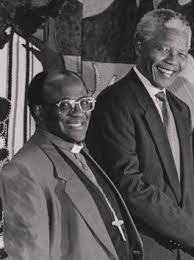As the sun paints the South African sky on March 29, the whispers of the past echo in the air. Like many threads woven into the nation’s vibrant tapestry, this date holds stories waiting to be unearthed. We embark on a journey of exploration, delving into the triumphs, tragedies, and turning points that mark March 29 in South Africa’s history.

2020: Khayelitsha confirms first COVID-19 case in Western Cape township
On March 29, 2020, Khayelitsha township in Cape Town confirmed its first case of COVID-19. The Western Cape was the second province in the country with the highest number of infected cases, led by Gauteng. Over 300 positive cases were confirmed by Premier Alan Winde. A response team was sent to informal settlements to prevent the spread of the virus.
2005: Third Pan African Parliament session begins in Midrand
The third session of the Pan African Parliament (PAP) began at its temporary home in Gallagher Estate in Midrand, north of Johannesburg. The session was opened by its president, Getrude Mongella. The opening of parliament coincided with the launch a PAP website and also marked the first full year of operation since it was launched in 2004 in Addis Ababa, Ethiopia.
2005: Mannetjies Coetzer is killed by a crocodile in the Kunene River
Mannetjie Coetzer was snatched by a Nile crocodile while taking a bath in the Kunene River in Namibia. His brother Lucas tried to save him but it was too late. The family was devastated but found solace in knowing that Coetzer passed away doing what he loved.
1998: British Airways prohibits smoking on all flights
In 1998, British Airways banned smoking on all flights. Other countries had already imposed smoking restrictions in the 1970s, but it was only applied to airlines in the 1980s. Initially, airlines made separate smoking areas, but by the late 1980s, all smoking was prohibited on flights under two hours. South African Airways followed suit soon after.
1990: ANC and IFP joint peace rally is called off
The ANC cancelled a peace rally with the IFP in KwaZulu-Natal due to hostility between the two parties which had claimed over forty lives in the preceding weeks. The decision was made to avoid a serious security problem.
1982: Journalist and political activist Selby Msimang dies
Henry Selby Msimang was a journalist, farm manager, clerk, interpreter, and political activist. He was a founding member of the African National Congress (ANC) and a staunch labour organizer. Msimang was also the editor of the newspaper Morumioa-Inxusa, author of numerous articles and a founder member of the Liberal Party of South Africa (LPSA). He passed away on 29 March 1982 in Edendale, Pietermaritzburg, leaving behind four sons and four daughters.
1979: Idi Amin, Ugandan dictator, flees after a seven year reign
Idi Amin Dada Oumee was a Ugandan military officer who seized power on January 25, 1971. He fled Uganda on March 29, 1979, after his brutal regime and corruption scandals turned the population against him. Amin went to Libya and eventually Saudi Arabia.
1933: Dr Stanley Mogoba is born in Polokwane
Dr. Stanley Mogoba, future Pan Africanist Congress (PAC) president, was born in Polokwane, and was detained on Robben Island during the 1980s. He became the presiding Bishop of the Methodist Church of South Africa in 1988.
1879: The Battle of Kambula takes place
On March 29, 1879, the Anglo-Zulu War Battle of Kambula took place. The battle involved the British Number 4 Column, led by Colonel Evelyn Wood VC, and the Zulu Army, led by Ntshingwayo kaMahole. The Zulu’s had a large numerical advantage over the British, with 2,000 British troops and native levies fighting against some 20,000 Zulus. In the event, the British were successful in defeating the Zulus, with Wood’s force suffering 83 casualties and the Zulus losing approximately 3,000 men.



